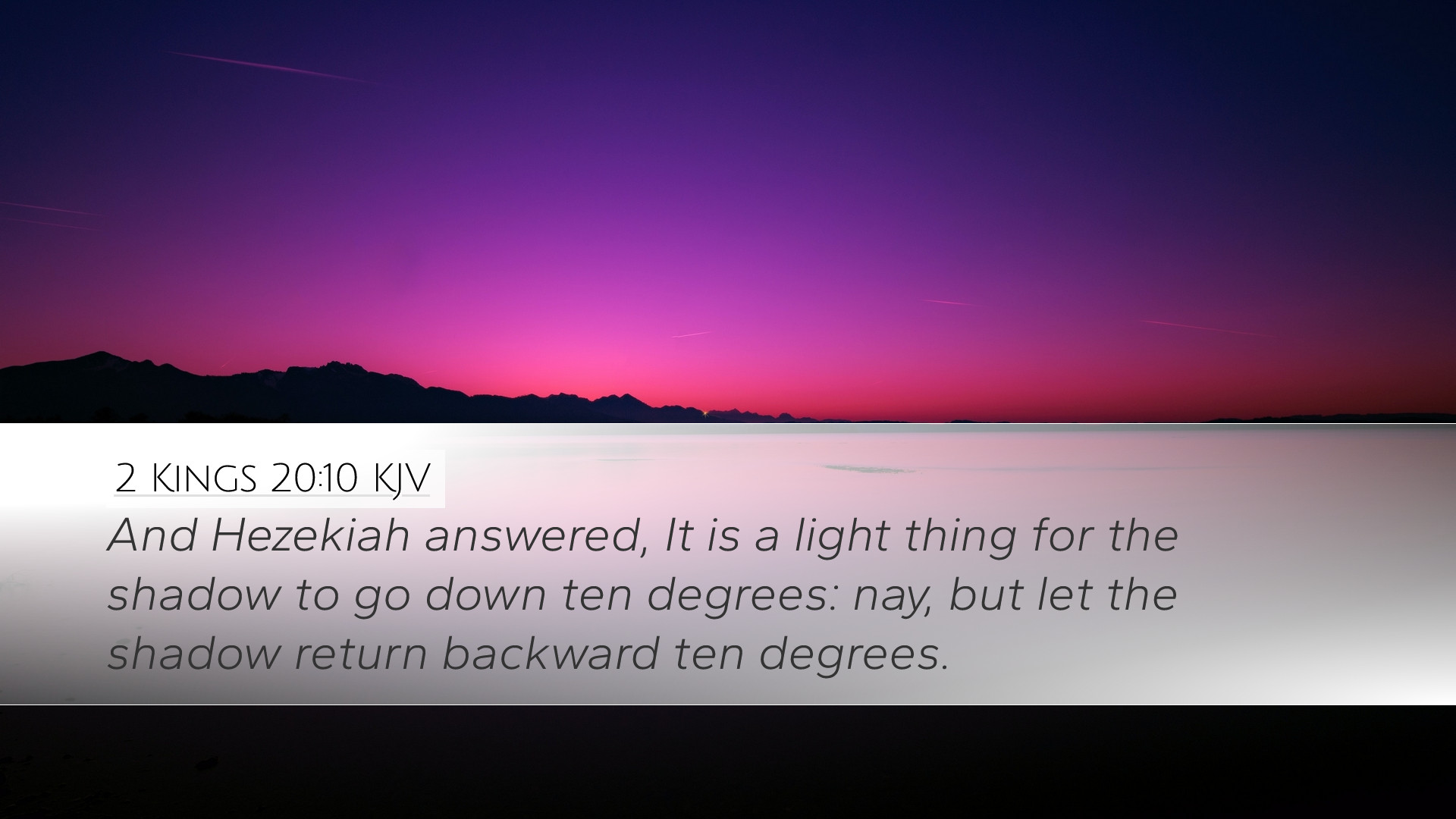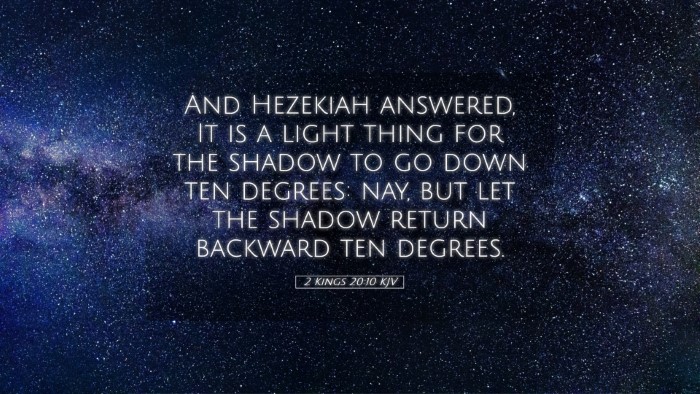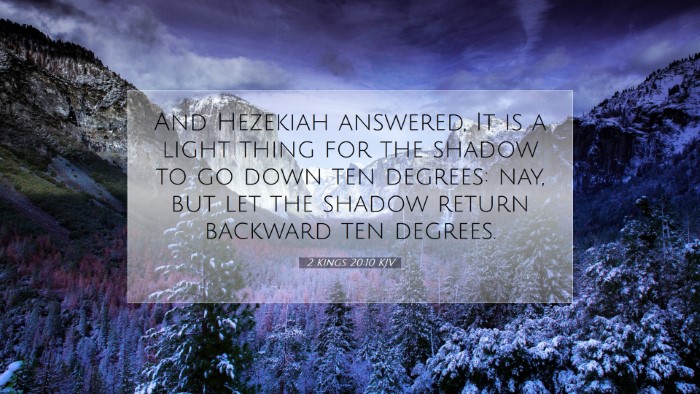Old Testament
Genesis Exodus Leviticus Numbers Deuteronomy Joshua Judges Ruth 1 Samuel 2 Samuel 1 Kings 2 Kings 1 Chronicles 2 Chronicles Ezra Nehemiah Esther Job Psalms Proverbs Ecclesiastes Song of Solomon Isaiah Jeremiah Lamentations Ezekiel Daniel Hosea Joel Amos Obadiah Jonah Micah Nahum Habakkuk Zephaniah Haggai Zechariah Malachi2 Kings 20:10
2 Kings 20:10 KJV
And Hezekiah answered, It is a light thing for the shadow to go down ten degrees: nay, but let the shadow return backward ten degrees.
2 Kings 20:10 Bible Commentary
Commentary on 2 Kings 20:10
2 Kings 20:10 reads: "And Hezekiah answered, It is a light thing for a shadow to go down ten degrees: nay, but let the shadow return backward ten degrees." This verse encapsulates a remarkable moment in the life of King Hezekiah, where he interacts with the prophet Isaiah, expressing his request for a divine sign of God’s extension of life.
Contextual Background
This event occurs during a critical period in Hezekiah's reign, marked by serious illness and impending death, as detailed in the surrounding verses. The prophetic declaration by Isaiah (2 Kings 20:1) sets the stage for Hezekiah's response and God’s miraculous sign. Understanding the historical and theological context of this moment is crucial for a comprehensive interpretation.
Theological Significance
This episode emphasizes the compassion and mercy of God, revealing His sovereignty over life and death. Hezekiah's request demonstrates profound faith, as he is not only seeking healing but also a miraculous sign. The passage opens up discussions on the nature of divine intervention and the role of faith in the believer’s life.
Hezekiah's Faith
Hezekiah’s response illustrates a deep understanding of God’s power. He views the backward movement of the shadow—an event altering the natural order—as a far greater symbol of God’s mercy than merely asking for a sign that seems trivial. In the words of Matthew Henry, "... it is a light thing for a shadow to go down ten degrees," implying Hezekiah’s understanding that God is capable of much more than what is easy or ordinary.
Insight from Albert Barnes
Albert Barnes elucidates the nature of Hezekiah's request, delving into the implications of asking for such a sign. It serves as an expression of both his desperation and profound faith in God’s ability to alter the course of nature. Barnes contends that this request reflects a man acutely aware of the mighty acts of God and yearning to witness divine authority firsthand.
Adam Clarke’s Perspective
Adam Clarke provides an analytical view, focusing on the miracle itself. He posits that the miraculous backward movement of the shadow is not merely a physical phenomenon but also a potent symbol of God’s reestablished relationship with His faithful servant. Clarke emphasizes that such signs serve as crucial affirmations of God’s providence and grace.
Practical Applications for Today's Believer
- Faith in the Face of Adversity: Hezekiah’s boldness in requesting a sign encourages believers to trust God deeply, especially in dire circumstances. It reminds us of the importance of daring to ask for God’s help and intervention in our lives.
- Understanding God’s Power: This passage invites contemplation on the limits of our understanding of God’s capabilities. Like Hezekiah, we are reminded that our requests do not exceed God’s power.
- The Importance of Signs: Just as Hezekiah sought a divine sign, Christians today seek assurances from God, reminding us that He is willing to engage with our doubts and uncertainties in our faith journey.
Conclusion
2 Kings 20:10 is a profound verse that exemplifies the intersection of faith, divine mercy, and the miraculous. Insights from scholars like Matthew Henry, Albert Barnes, and Adam Clarke enrich our understanding of this text, inviting deeper reflection on God’s character and His unwavering commitment to those who trust Him. This moment in Hezekiah's life serves not just as a historical account but as a timeless reminder of God’s ability to intervene and bless His faithful followers.


